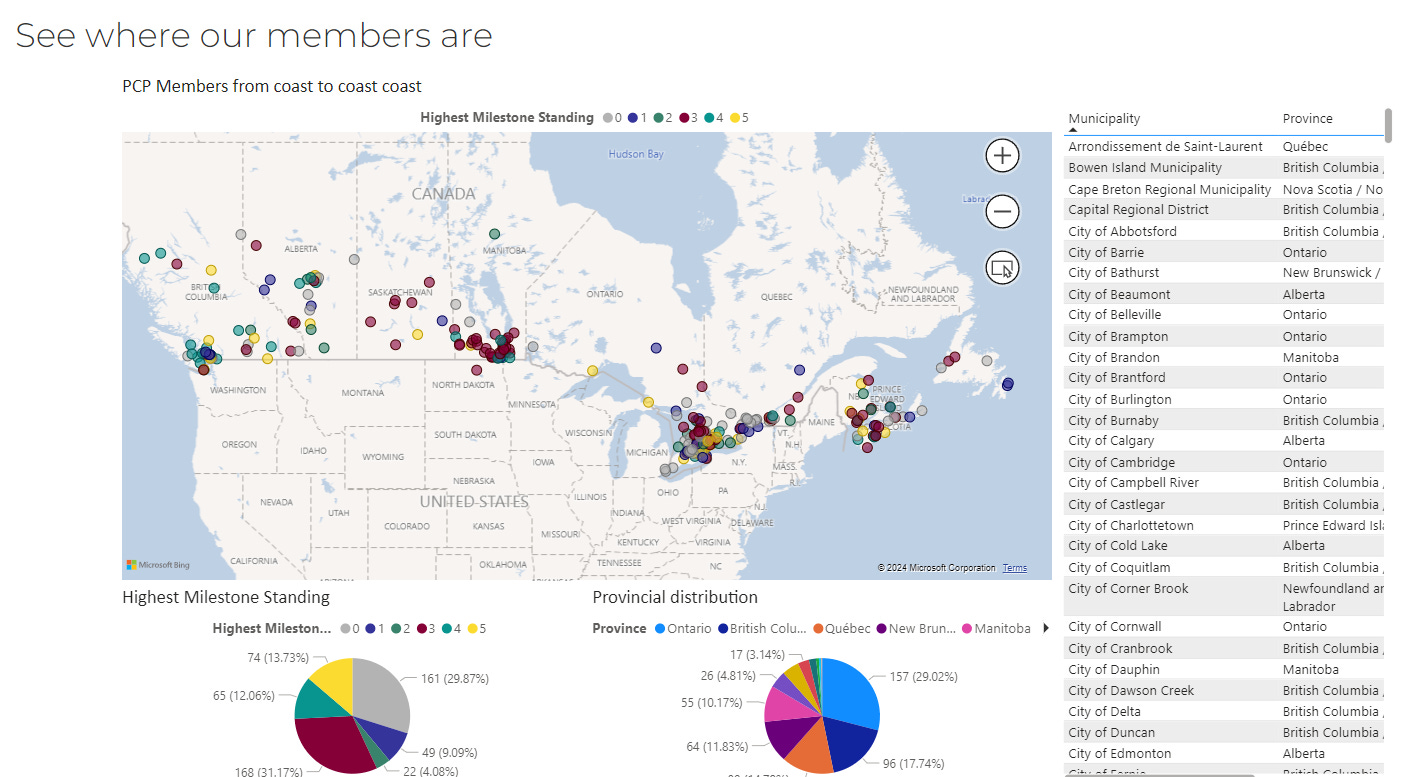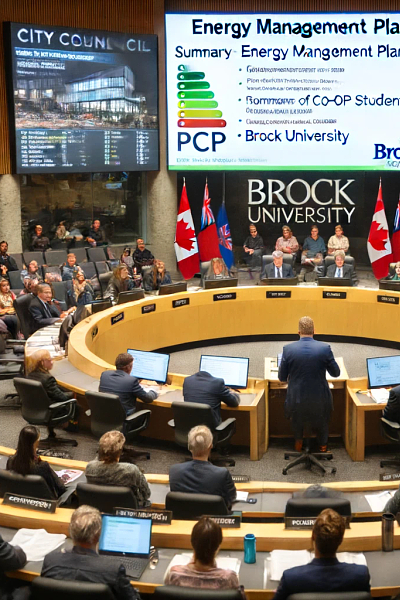Background
Agenda 21 and the Partners for Climate Protection Program
Agenda 21 is a global-to-local agenda aimed at promoting sustainable development. One of the main United Nations directives implemented in Canadian municipalities is the Partners for Climate Protection Program (PCP). Administered by the Federation of Canadian Municipalities and funded by ICLEI Canada and the Government of Canada, the PCP program has been adopted by over 500 municipalities, impacting 98% of Canadians.
KICLEI Initiative Success in Thorold
The KICLEI initiative, along with local advocates, has successfully campaigned for the City of Thorold to withdraw from the PCP program. This achievement serves as a model for other municipalities considering a similar course of action.
Tools for Local Advocacy
We have documented the history of KICLEI and the strategies used in Thorold in a recent article. Additionally, we provide the following tools to support local advocacy groups in their efforts to terminate their municipalities' partnership with the PCP program:
Delegation Script: A comprehensive script to guide advocates during presentations to municipal councils. (The 10 minute script has been condensed into a 5 minute script.)
PowerPoint Presentation: A detailed PowerPoint to visually support the key points and arguments for withdrawal.
By utilizing these resources, local advocacy groups can effectively work towards ending their municipalities' participation in the PCP program.
Thorold Script (5 minutes)
Good evening Mayor Ugulini, Thorold Council, and residents,
I am here to support the staff's recommendations to withdraw from the Partners for Climate Protection (PCP) program.
On January 17, 2023, this councillor was informed that the PCP program would help staff complete the provincially mandated energy consumption and demand report. This report, taking no more than 100 hours to complete every five years, focuses on energy consumption for municipal buildings occupied by employees. However, the Partners for Climate Protection program is much more extensive.
Its five milestones involve detailed analyses of energy consumption and waste from all sectors and sources, initially taking at least 300 hours and repeating annually. According to the protocol for Milestone One, the municipality must measure energy consumption from all sources, record total electricity consumed by municipal lighting, track energy consumption of water and wastewater facilities, record fuel sources and emissions from purchased electricity, and document waste output from municipal properties.
Detailed audits are also required to identify and categorize waste materials, determine the organic carbon content in the waste stream, calculate methane potential of landfill waste, and assess the decay rate at landfill sites. Energy usage and emissions for all types of fleet vehicles, staff business travel, staff commuting, public transit fleet vehicles, streetlights, and traffic signals must also be reported.
Community sector data collection to meet PCP requirements includes emissions from all fuel sources and electricity for residential, institutional, commercial, and industrial buildings. Transportation data involves fuel sales records, kilometers traveled per vehicle, and emissions from all vehicle types and transit systems. Industrial processes must account for non-energy-related emissions, while fugitive emissions from fossil fuel production and wastewater treatment are meticulously recorded. Energy consumption for public lighting must also be reported.
I’d like to address some ethical concerns and practical implications of municipalities voluntarily participating in data harvesting programs on behalf of private industry.
Firstly, such extensive data collection often infringes on the privacy of residents and staff. People may be unaware that their daily energy and waste habits are being meticulously recorded, leading to a sense of distrust in local governance. Moreover, the primary purpose of this data collection, the marketing of green energy products, suggests a profit-driven motive that may prioritize corporate gain over genuine environmental stewardship and may not align with the community's best interests. Lastly, the data gathered is often managed by third-party companies like ICLEI, raising concerns about data security and potential misuse. The risk of data breaches or the exploitation of sensitive information for commercial purposes cannot be overlooked.
Setting reduction targets through the PCP program entails a significant commitment that shapes all future municipal plans and decisions. Targets often set to zero by 2050 align with the IPCC’s theory of limiting global temperature increase to below 2°C. The binding nature of these targets challenges future councils, making it difficult to reverse established commitments.
Milestone Three involves developing a local action plan often including purchasing electric vehicles, staff training, exploring renewable energy, conducting energy audits, and adopting green building standards. While aimed at sustainability, these measures often come with high costs and may prioritize corporate interests over local needs. In Milestone Four, the council endorses a local climate action plan, securing future expenditures on green energy products. Milestone Five repeats the data collection process, often leading to climate emergency declarations designed to galvanize public opinion and justify expenditures. This cyclical process can create a sense of urgency, pressuring councils to adopt costly green technologies and policies without thorough scrutiny.
Municipalities implementing this program often spend significantly more on climate initiatives than on addressing immediate community needs. This raises concerns about prioritizing long-term environmental goals over urgent local issues that directly impact residents' daily lives and well-being.
Municipal governments should focus on ensuring safe roads and public spaces, maintaining infrastructure, promoting local businesses and jobs, supporting education, providing affordable housing, enhancing parks and community programs, improving public transit, fostering community involvement, and environmental stewardship. Environmental stewardship is best achieved through impactful local programs designed by your community, such as community gardens, urban forestry, reuse centers, community cleanups, permaculture, and skill share workshops.
In conclusion, I extend my gratitude to the staff for their recommendation to withdraw from the PCP program, thank the Council of Thorold for their commitment to public engagement, and appreciate the residents of Thorold for their support. 250 residents signed a statement of support to withdraw from the PCP program, and many are here tonight.
This is the right step for Thorold, ensuring our valuable data and finances are protected, and immediate needs and priorities are kept at the forefront.
Thank you for your attention.
PowerPoint
Video
Recommended Resources for Advocacy
It is recommended that those advocating for the reconsideration of the PCP program in their municipalities review the following resources:
PCP Program's Workbooks: These workbooks provide detailed insights into the objectives, methodologies, and implementation strategies of the PCP program. Understanding these elements can help advocates present well-informed arguments for reconsideration. PCP program's workbooks
KICLEI's Thorold Case Study: This case study documents the successful withdrawal of the City of Thorold from the PCP program. It outlines the strategies used, challenges faced, and the overall process, offering valuable lessons and best practices for other municipalities. Thorolds Case Study.
By studying these resources, advocates can build a strong foundation of knowledge and develop effective strategies for their local campaigns.
Join the KICLEI Movement! 🌍- FYI the KICLEI Website has been hacked - links will be updated ASAP
Unlock the potential of localism and environmental stewardship with KICLEI. Explore our mission, get involved, and stay updated through our various platforms:
Join the KICLEI Network
KICLEI Mission: Join Us
KICLEI Action Plan: Share the Mission
YouTube: KICLEI Canada
Rumble: KICLEI Canada
BitChute: KICLEI Channel
X (Twitter): @kiclei_canada
TikTok: Maggie Dingman
Facebook: Gather 2030
KICLEI | Substack: Subscribe Now
Gather 2030 | Substack: Stay Informed
KICLEI Store: Shop Now
Donate to KICLEI: Support Our Mission
Contact Us
For more information, collaboration, or to join our cause, reach out to us at
Email: info@kiclei.ca | gather2030@gmail.com






